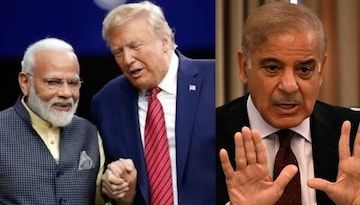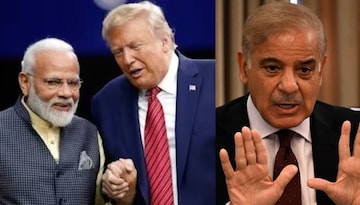
India’s recent move to officially declare The Resistance Front (TRF) a terrorist organization under the Unlawful Activities (Prevention) Act has drawn sharp criticism from Pakistan. Islamabad, in a strongly worded statement, accused both India and the United States of destabilizing regional peace and “sponsoring false narratives.”
The TRF, which has been an offshoot of the proscribed terror group Lashkar-e-Taiba (LeT), has been linked to several deadly attacks in Kashmir over the past few years. Indian intelligence agencies claim that the group has been instrumental in executing targeted killings of civilians, including migrant workers and Kashmiri Pandits, as part of its anti-India agenda. Despite its relatively recent formation, TRF quickly rose in notoriety and was already under international scrutiny, especially from U.S. counterterrorism agencies.
On July 17, 2025, India officially banned the organization, calling it a “dangerous proxy” operating with backing from Pakistani handlers and intelligence services. The Ministry of Home Affairs said the TRF has been “actively recruiting youth, radicalizing them online, and planning terror strikes on Indian soil.”
Reacting to the move, Pakistan’s Foreign Office issued a strongly worded response, stating that India is trying to draw international attention away from its alleged human rights violations in Kashmir. More controversially, Pakistan alleged that the U.S. was “encouraging India’s provocations,” with one senior official quoted in Pakistani media saying, “America is provoking India to escalate tensions in South Asia.”
This isn’t the first time Pakistan has taken issue with American support for Indian counterterrorism efforts. Islamabad has repeatedly accused Washington of bias and turning a blind eye to what it calls “India’s atrocities in Kashmir.” However, Washington has remained largely aligned with India on the TRF matter, with several U.S. lawmakers earlier supporting sanctions against groups involved in cross-border terrorism.
Indian political analysts see Pakistan’s statement as a sign of growing international pressure. “This outrage shows that the world is waking up to the reality of Pakistani-sponsored terrorism,” said former Indian diplomat Vivek Katju. “The TRF ban is not just symbolic — it’s a strategic step to cut off funding, arms, and digital propaganda networks that operate across borders.”
Meanwhile, Kashmir remains on high alert, with security forces intensifying their operations to crack down on TRF operatives and sympathizers. Authorities have also launched a social media watch program to curb radical messaging and recruitment.
The diplomatic row adds another layer of tension in an already strained relationship between India and Pakistan. Experts believe that Pakistan’s aggressive response reflects its discomfort with increasing international isolation on the terrorism issue, especially after its recent greylisting threats by the Financial Action Task Force (FATF).
While India maintains its firm stance on national security, the geopolitical consequences of this move — particularly the growing divide between India and Pakistan — are likely to echo in international diplomacy in the months ahead.

